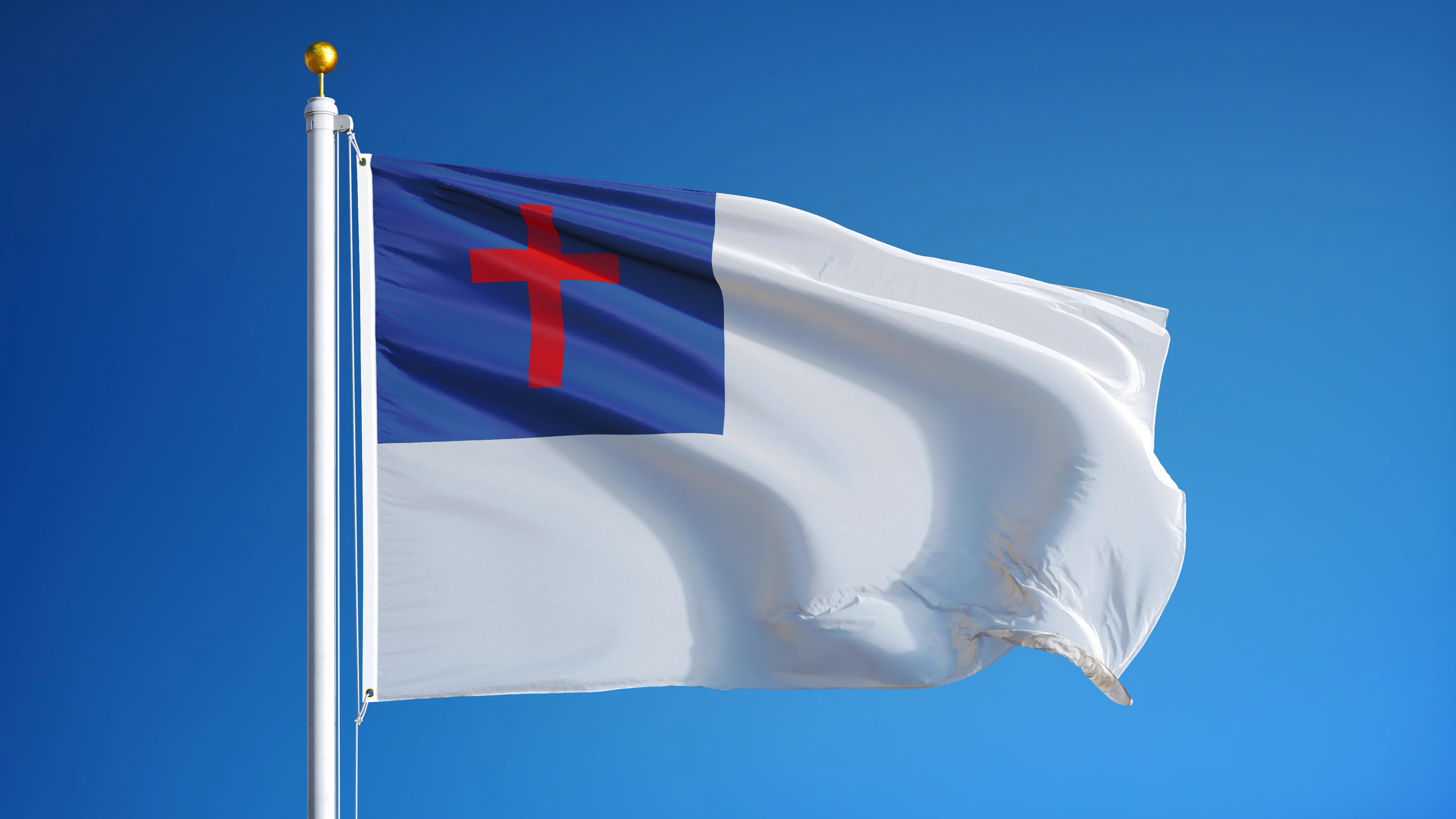
The dismaying Christian flag case heard by the U.S. Supreme Court today will have an unclear impact for future cases, the Freedom From Religion Foundation warns.
The high court this morning heard the case of Shurtleff v. City of Boston, involving a demand by a Christian group to hoist a Christian flag on the flagpole at Boston’s City Hall. The flag features a blue rectangle in the corner with a blood-red Latin cross and is the same flag that was paraded during the Jan. 6 Capitol insurrection, along with symbols of white supremacy.
A majority of the justices seem poised to rule that Boston should have approved the Christian flag. “The real question is the scope of the court’s decision later this year and what signal it might send to other governmental bodies,” says FFRF Legal Director Rebecca Markert.
Most of today’s arguments focused on the free speech claims of Camp Constitution, a Christian group that asked the city to fly the Christian flag, apparently partly in response to the city flying the rainbow LGBTQ flag for the officially recognized Boston Pride Month.
But during oral arguments, Justice Brett Kavanaugh chillingly remarked that a “mistaken” understanding of the Establishment Clause was the “root cause” of the denial here, citing a friend of the court brief by the Becket Fund, a religious group. That brief had called for overturning the Supreme Court’s longstanding “Lemon test” to determine conflicts between state and church.
Justice Neil Gorsuch asked that if the court agrees that the city’s denial was based on a mistaken understanding of the Establishment Clause: “What’s left for us to decide?”
Boston has maintained that flags on its flagpoles are attributable to the city and not private speakers so it can decide not to affiliate itself with religion.
FFRF submitted a friend of the court brief maintaining that Boston’s flagpole is a nonpublic forum subject to reasonable restrictions, and that the city’s restriction on religious flags is appropriate to avoid the appearance of religious endorsement. FFRF pointed out this is not a case of viewpoint discrimination, because the city of Boston has not flown flags representing other religions or sects.
The flagpole in question is one of three 83-foot-tall flagpoles standing prominently in front of the city hall entrance. On one the U.S. flag always flies, on the second a Massachusetts flag and on the third, the city flag usually flies. The city flag is occasionally replaced by an approved temporary flag, usually representing another country or an officially recognized event, for limited periods of time. Over 90 percent of such flag raisings are of national flags. City employees are present for each flag-raising.
That the high court agreed to take the case, even though the U.S. 1st Circuit Court of Appeals had ruled in Boston’s favor, signals that at least four justices seek to overturn the appeals court findings.
Camp Constitution is being represented by Liberty Counsel, an extremist Christian nationalist legal outfit.
The oral argument comes less than a week after the Supreme Court ominously accepted for review a challenge from a Washington state former high school football coach insisting he has a free speech right to conduct prayers with students during school football games. This continues the alarming trend of the ultraconservative court taking more and more religious liberty cases.
“While this case is objectively about Boston’s flag policy, it appears that the Supreme Court, entrusted to enforce the First Amendment and our godless Constitution, fully intends to issue a ruling, however narrow its grounds, that would force an American city to fly a Christian flag over its city hall,” says Annie Laurie Gaylor, FFRF co-president. “The idea that the U.S. and Massachusetts flags would fly in tandem over Boston City Hall with a Christian nationalist symbol would have been unthinkable only a few short years ago.”
The Freedom From Religion Foundation is the largest association of freethinkers in the United States, representing more than 35,000 atheists, agnostics, and other nonreligious Americans, including more than 700 members in Massachusetts. Its two primary purposes are to educate the public about nontheism and to defend the constitutional principle of separation between state and church.

